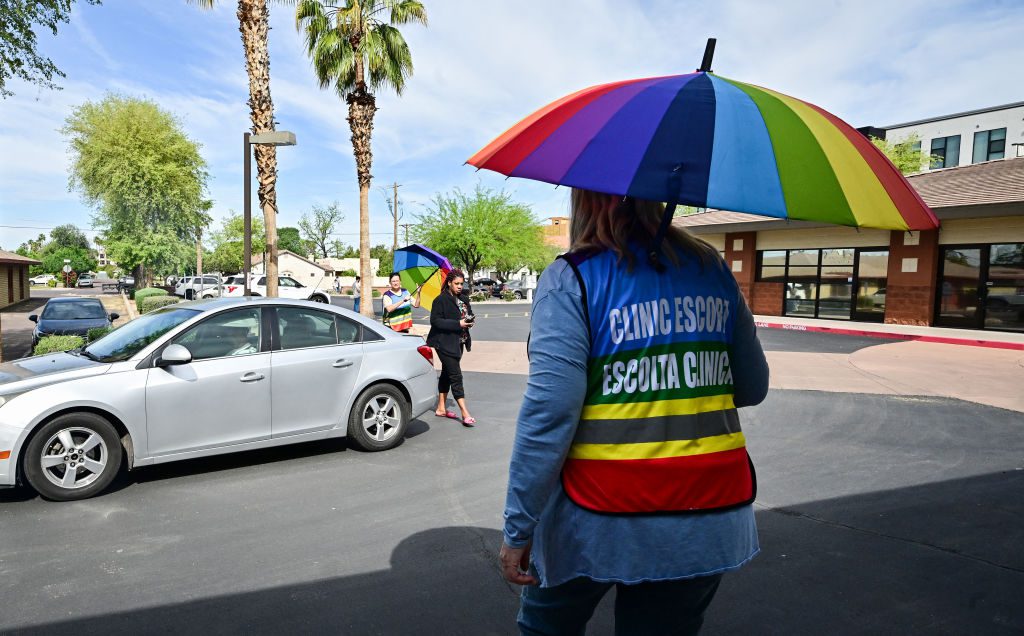Rosie’s House provides free musical education to children in Phoenix through private donors, grant funding, and instrument donations from the public.
A blossoming music academy in downtown Phoenix has so many incoming students, they’re running short on instruments.
At the end of August, 250 new students will begin classes at Rosie’s House—providing music education to more students than ever who might not otherwise have the opportunity.
But with more students comes growing pains: The music academy for children is in need of cellos and violins of all sizes, guitars, trumpets, saxophones, and keyboards to support their students.
For Arizona news you can look forward to, sign up for our FREE daily newsletter here.
The after-school program is geared toward families with school-age children with a household income that is at or below the median—in Phoenix, that’s $88,800 for a household of four. Rosie’s House also caters to students who are the least likely to seek out private music lessons or music academies with tuition requirements.
Rosie’s House was founded in 1996 by Rosie Shurz in a small home in Phoenix, and aims to act as a second home to disadvantaged children. In addition to a growing student body, it also boasts an impressive faculty: The academy employs 23 teachers, many of whom teach at the university level and have master’s degrees or doctoral degrees.
“One of the things that was a foundational part of this opportunity for families—meaning, to get a music lesson—was that there would be no barrier to it,” said Marvin Scott, program and community engagement director for Rosie’s House.
Enriching Students’ Future Careers
Ivan Martinez Morales attended Rosie’s House from 2009 to 2012, starting when he was 15. He graduated from the program at 18 and is now on the Board of Directors.
At Rosie’s House, Martinez Morales learned the value of teamwork, communication, and perseverance—propelling him forward in his career as a software engineer.
“I love being a really great example for what can transpire if you stick to music and learn the skills…and then go out into the world and make the world a better place through what you learn there,” Martinez Morales said.
Playing music is never easy, Martinez Morales told The Copper Courier, and as a musician, there is a desire to play every piece of music as perfectly as possible. He said that learning to work with repetition and achieving that level of perfection is something that he takes with him to this day as a software engineer.
RELATED: Arizona Superintendent Tom Horne Loses Battle Over Dual Language Programs
“[Learning music] really enriched not only my own life, but enriched the life of everyone that was around that played music with me,” Martinez Morales said.
At Central High School in Phoenix, Martinez Morales was in the school band, where he was able to take what he learned at Rosie’s House and enrich the skills of those around him.
“It kind of created a bit of a network effect, where I was taking the things that I would learn and then passing it on to the other students, and so that was not only reinforcement for myself, but it allowed those students to pass it on to people that they would know,” Martinez Morales said.
Learning to Play
Martinez Morales primarily played the saxophone—but dabbled in drums, tuba, and contra bass in high school, even playing in the Phoenix Youth Symphony.
He already knew the basics of saxophone after teaching himself, but said that Rosie’s House gave him the opportunity to learn from very seasoned professionals in the industry.
Picking the saxophone as his main instrument was almost decided for him—Martinez Morales’ father loved jazz and always wanted to learn to play the saxophone himself, so his father scrapped together some money and purchased the instrument from a pawn shop.
“It wasn’t a good saxophone at all. I think it had leaks,” Martinez Morales said. “But my dad did what he did and to ensure that I would have a horn to play that I could call my own.”
Eventually, Martinez Morales was able to get an instrument loaned through his high school and, after solidifying his skills through lessons at Rosie’s House, he taught his dad how to play the saxophone.
Now a part of Rosie’s House leadership, Martinez Morales is able to give back to the community that gave him so much.
Building Community
And according to Martinez Morales, building a community is part of what makes Rosie’s House so special. Students develop a community in their classes—everyone is there because they want to be there and become better students and musicians, and grow together through that shared experience.
“For the parents, it creates a sense of community. It exposes their children to being able to have this private education that normally wouldn’t be at their grasp if they weren’t going out and paying for private lessons,” Martinez Morales said.
The importance of community engagement was also emphasized by Scott, who said it’s a big part of how Rosie’s House keeps going.
“There may be pockets of the community that have not gotten information about our program and there’s families that might be able to participate [that aren’t aware of the program],” Scott said.
Opportunities and Resources For Students
While Rosie’s House looks out for its community, the community looks out for the students participating in the program.
Students at Rosie’s House have the opportunity to perform in front of an audience in a variety of settings, from performing at hospitals and museums, to recitals within the program.
To further support their students, Rosie’s House partners with St. Mary’s Food Bank and serves their Kids’ Cafe meals.
Donations have always come from people in the community, which is a big piece of what makes the program free for students to attend, Scott said.
On top of donations, Rosie’s House receives funding from a number of grants, trusts, foundations, and private donors.
How Do Students Apply?
The enrollment period is from the end of August to the beginning of May, and the intake process begins in June each year.
Families must qualify for the program based on their household size and income, and students are selected using a lottery system. To apply, families must submit an interested family form.
Students that do not immediately get in are encouraged to apply again as many times as needed, or are given the option to enroll in a different class than they intended.
Parents are required to volunteer for four service hours per semester for each of their children that attend Rosie’s House, which includes activities like recital duty and campus clean-up days.
To make a donation to Rosie’s House, visit this website.
Subscribe to The Copper Courier’s daily newsletter! We keep it 💯—just like the temperature.
Politics

How to apply for a job in the American Climate Corps
The Biden administration announced its plans to expand its New Deal-style American Climate Corps (ACC) green jobs training program last week. ...


AG Mayes says earliest day Arizona’s 1864 abortion ban can be enforced is June 27
Arizona Attorney General Kris Mayes says the earliest day the state’s 1864 abortion ban can be enforced is June 27. The Arizona Supreme Court on...
Local News



How to apply for a job in the American Climate Corps
The Biden administration announced its plans to expand its New Deal-style American Climate Corps (ACC) green jobs training program last week. ...


Basha’s sisters Gabriella and JJ Garcia share unique bond through sports
Sisters Gabriella and JJ Garcia are outstanding athletes at Basha High in Chandler who share a strong bond of friendship and inspiration. CHANDLER –...





